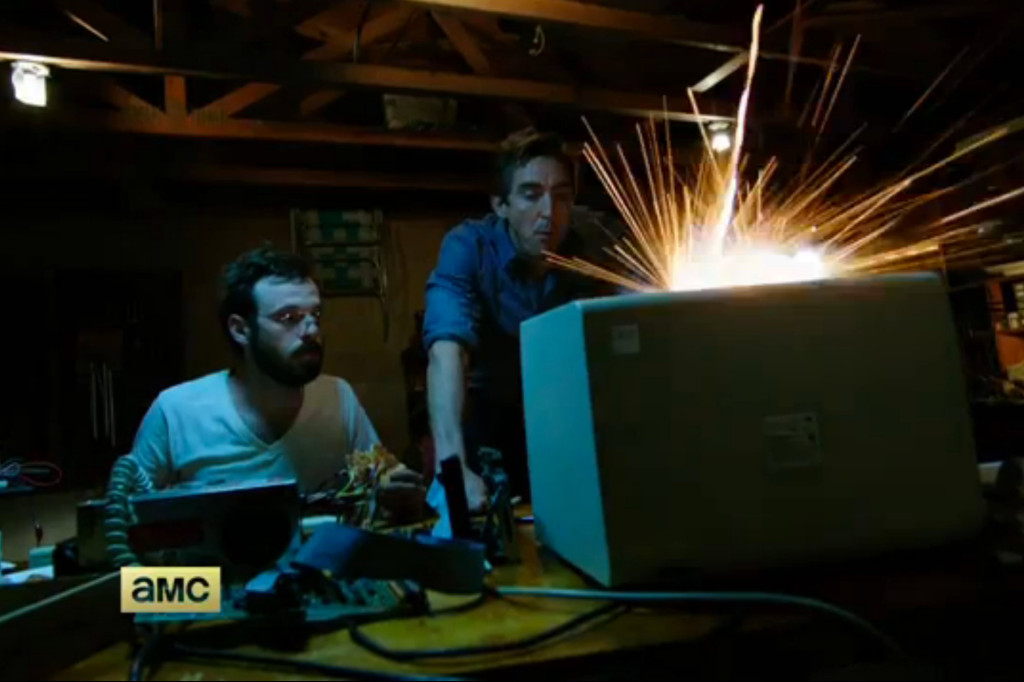On the Veracity of AMC’s Halt and Catch Fire
Ever since I posted my episode last week interviewing Rod Canion with the truth behind the Halt And Catch Fire story people have been tweet-mailing me asking for more details. Do I think this show will actually follow the real story or not?
Well, you should probably read this article which goes into depth outlining the show’s creation.
And if you haven’t listened to the episode yet, here you go…
My take? It sounds like the people behind the show heard some stories about the “Silicon Prairie” era we mentioned on the podcast, and rightfully (in my opinion, natch) thought that tech history is a hot topic right now. So, put Mad Men, The Social Network and 80s nostalgia in a blender and here you go.
But, that’s not necessarily a bad thing.
It seems to me that those ARE some good ingredients to work with. And by going a bit off the reservation (show NOT set in Silicon Valley; little known corner of tech history) the creators can carve themselves out something interesting here.
After all, who would really care about the fictionalized story of the creation of Oracle? Or Dell. Or Columbia Data Products.
(Ok, I’ll grant that a show about Larry Ellison’s life would be insanely great.)
So is Halt And Catch Fire Based On a True Story?
That’s the point. I’m glad it’s not.
The showrunners and creators can create a quasi-fictional world, just like Mad Men has. Mad Men touches on real brands and real companies, but it is not, and has never claimed to be a history of Madison Avenue.
In a similar way, HACF can tell an early 80s tech story that touches on real things, real people (maybe a Steve Jobs or a Bill Gates shows up now and then) but it can also create it’s own history. Maybe they become the young upstarts like Dell. Maybe the company they supercharge is a bit like Compaq.
So, like I said in the episode, it’s “loosely” based. But that should be a good thing overall for the show.













I was pretty amused by Rod Canion’s revisionist history of the IBM compatible. Yes, Columbia Data Products had a compatible PC out with a clean-room BIOS *before* Compaq even began their project. Were there issues with compatibility for the CDP? Possibly at first, but certainly by the time Compaq finally had a system out, the Columbia was every bit as compatible.
I can’t speak for the first 1,230 Columbia MPC 1600-1s shipped — but I know #1,231 ran every piece of IBM PC software I threw at it flawlessly — including some internal IBM apps my father-in-law brought over just to see if they’d run.
In 1985-86, I even wrote a chapter of “Dr. Dobb’s Turbo Toolbook” on making low-level system calls from Turbo Pascal routines — hooking into the machine’s interrupts, essentially — on the MPC. Everything performed flawlessly.
Compaq may not have been the first to clone the IBM PC or the best at doing so — but one place where they matched IBM in dedication and ingenuity was in the sowing of FUD: Fear, uncertainty, and doubt. At the time there were definitely non-clone MS-DOS machines on the market, and Compaq did a stellar job confusing Columbia and Corona in the public eye, or claiming the additional functionality Columbia built into the MPC (like its built-in ROM debugger) meant it was less than compatible. Eventually, competition skyrocketed, and prices raced each other to the bottom; in the middle of this turmoil, CDP management built a multimillion-dollar, solar-powered factory — in 1984 (!) — and almost immediately went under.
Interesting… thanks for the new details.
So is it ok if I say that HACF is a parallel or alternate universe of the BIOS reverse engineering days?
I was the one of the first two technical support engineers and the Manager of Technical and Application Support for Columbia Data. I cut my teeth while deep in the guts of the CDP, IBM, Compaq and Apple machines. The failure of CDP had more to do with the aesthetics, SW licensing, and dumb distribution policies. The machines were good – not perfect- but good. Since I was never let near Compaq, I’m not privy to their internal dramas, processes, or practices. But it is very possible that whatever made them “them” is a better story than the one about whatever made us “us”.
I worked in the PC repair center in Philadelphia in the early 1980s – the management hierarchy at that time was at a loss on how to provide basic hardware service.
PC customers were required to pack up the device & carry it to a repair center (ours on the 17th floor of a center-city Philadelphia office building with no parking). Warranty service was performed on-site, but non-warranty work was shipped to Paramus, NJ.
By contrast a Selectric typewriter customer received on-site service at their office.
[…] Vissa inslags likhet och olikhet jämfört med verkligheten har jag faktiskt läst om, till exempel hur det lilla – fiktiva – företaget Cardiff Electric i första säsongen bygger en av de första pc:arna genom att skriva en egen version av IBM:s kod som gjorde deras dator kompatibel med jättebolagets programvara. Historien delar gemensamma drag med en motsvarighet i verkligheten: Compaq, som byggde en tidig pc som var kompatibel med IBM … Det här har jag läst om till exempel i Brian Mcculloughs blogg på Internet History Podcasts webbplats. […]